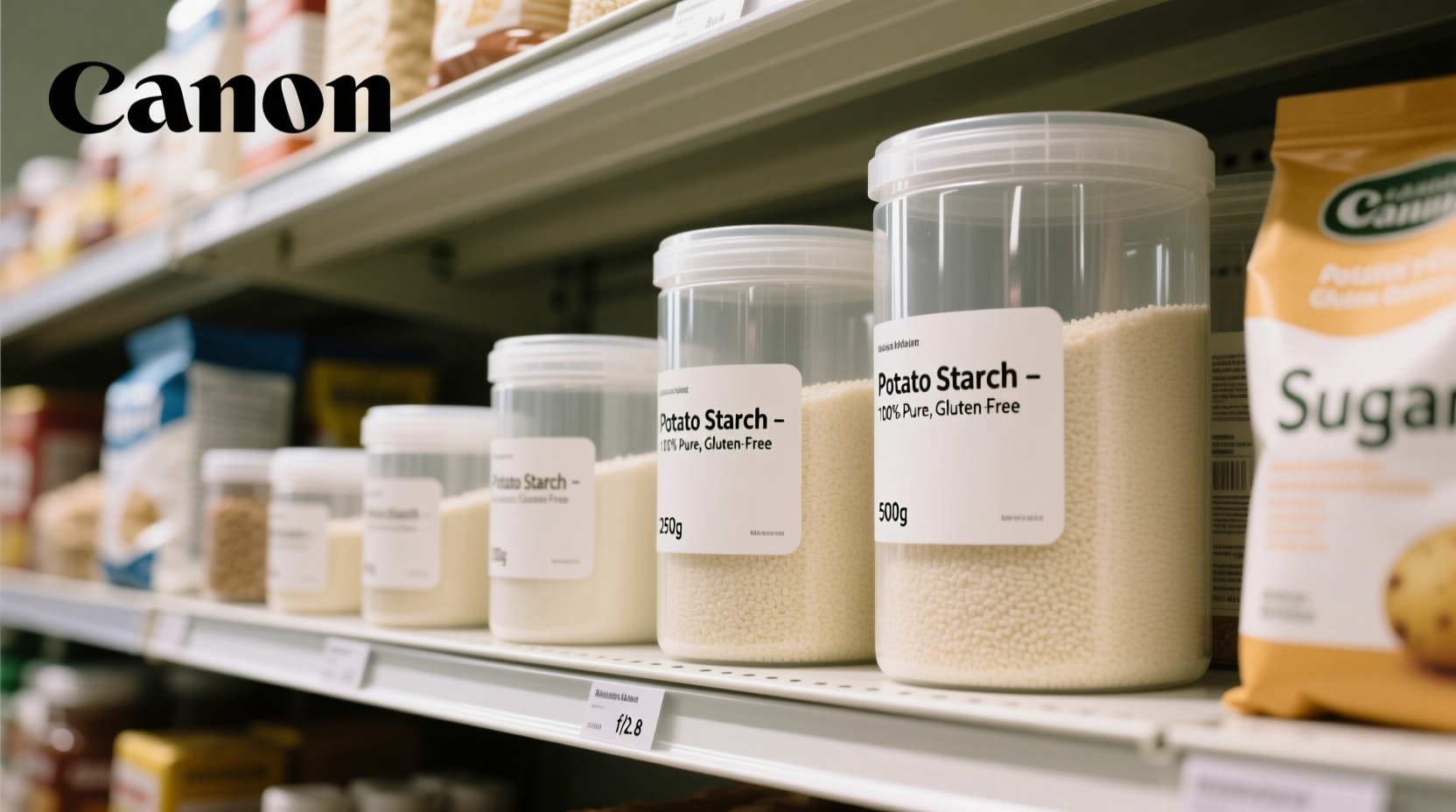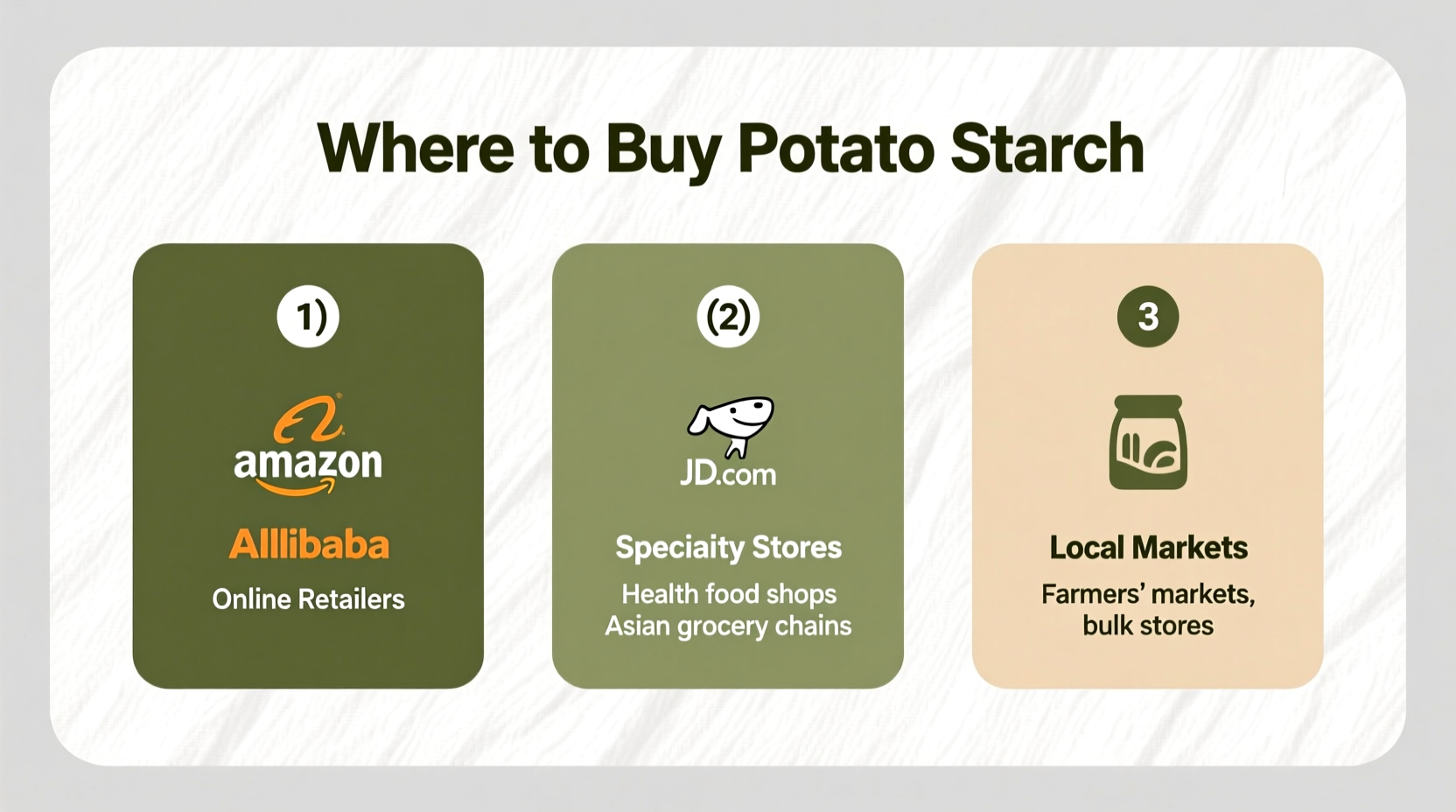Knowing exactly where to buy potato starch saves time and ensures your recipes turn out perfectly. Whether you're making gluten-free dishes, thickening sauces, or preparing traditional Eastern European or Asian cuisine, having the right starch on hand makes all the difference. This guide walks you through every purchasing option with practical details to help you find exactly what you need.
Understanding Your Potato Starch Needs Before Shopping
Before heading out to buy potato starch, determine what type best suits your cooking requirements. Pure potato starch differs from potato flour and other starches like cornstarch or tapioca. It's prized for its neutral flavor, high thickening power, and clarity when cooked—making it ideal for delicate sauces, pie fillings, and gluten-free baking.
Consider these factors when shopping:
- Recipe requirements: Some dishes specifically call for potato starch's unique properties
- Quantity needed: Home cooks typically need 8-16 oz containers, while frequent users may prefer bulk
- Special dietary needs: Verify gluten-free certification if required

Major Grocery Stores Carrying Potato Starch
Most large supermarket chains stock potato starch in two possible locations: the baking aisle alongside other thickeners, or the international foods section featuring Eastern European or Asian products.
| Grocery Chain | Typical Location | Common Brands | Average Price (1 lb) |
|---|---|---|---|
| Walmart | Baking aisle or International foods | Bob's Red Mill, Great Value | $3.50-$5.00 |
| Kroger | Gluten-free section or International | Anthony's, Hodgson Mill | $4.00-$6.50 |
| Target | Natural foods aisle | Good & Gather, Bob's Red Mill | $4.50-$6.00 |
| Whole Foods | Gluten-free baking section | Bob's Red Mill, Otto's Naturals | $5.50-$7.50 |
According to the FDA's food labeling guidelines, products labeled as "potato starch" must contain only starch extracted from potatoes without additives. This regulation helps consumers identify pure products versus blends that might contain other starches.
Specialty Retailers for Hard-to-Find Varieties
When standard grocery options don't meet your needs, specialty retailers provide access to premium, organic, or region-specific potato starch varieties:
- Asian grocery stores: Look for brands like Tapioca House or Thai Kitchen, commonly used in Asian cooking
- Eastern European markets: Often carry European brands like Mondelēz's "Kroon" specifically formulated for traditional dishes
- Health food stores: Whole Foods, Sprouts, and local co-ops typically stock organic and non-GMO verified options
- Bulk food stores: WinCo, Costco, and local co-ops offer larger containers at better value per ounce
For those following specific dietary requirements, verify certifications on packaging. The Celiac Disease Foundation notes that while pure potato starch is naturally gluten-free, cross-contamination can occur during processing—making certified gluten-free options essential for those with celiac disease.
Online Retailers for Convenience and Selection
When local options are limited or you need specialty varieties, online retailers provide extensive selection with home delivery. Consider these platforms:
- Amazon: Offers multiple brands with Prime shipping; search for "potato starch" rather than "potato flour"
- Thrive Market: Specializes in organic and non-GMO pantry staples with membership pricing
- Penzeys Spices: Carries high-quality potato starch alongside other specialty ingredients
- Amazon Fresh and Walmart Grocery: For same-day or next-day delivery of common brands
Online shopping provides access to detailed product information and customer reviews that help verify quality. When purchasing online, check recent reviews specifically mentioning texture, purity, and performance in recipes—these practical insights often reveal more than marketing claims.
What to Check Before Finalizing Your Purchase
Whether shopping in-store or online, verify these critical details to ensure you're getting quality potato starch:
- Ingredient list: Should contain only "potato starch" without fillers or anti-caking agents
- Color and texture: Pure potato starch appears bright white with fine, smooth powder consistency
- Expiration date: Fresh starch should have at least 12 months before expiration
- Storage instructions: Properly packaged starch should specify cool, dry storage conditions
Food scientists at the USDA Agricultural Research Service note that potato starch maintains optimal thickening properties for 18-24 months when stored properly in airtight containers away from moisture. Beyond this timeframe, its viscosity-reducing enzymes can degrade performance in recipes.
Troubleshooting Common Purchase Challenges
Even with multiple purchasing options, you might encounter these common issues:
- Substitution confusion: Potato starch differs from potato flour (made from whole potatoes) and other starches. If unavailable, arrowroot makes the closest substitute for most applications.
- Regional availability differences: In some areas, particularly rural locations, online ordering may be your most reliable option.
- Quality inconsistencies: Some budget brands contain fillers that affect performance. Stick with reputable brands for critical recipes.
- International shipping limitations: Certain countries restrict food imports, making local sources essential for international shoppers.
When potato starch remains elusive, check with local bakery supply stores—they often carry professional-grade ingredients not found in regular grocery stores. Many now offer online ordering with local pickup options, bridging the gap between specialty availability and convenience.











 浙公网安备
33010002000092号
浙公网安备
33010002000092号 浙B2-20120091-4
浙B2-20120091-4